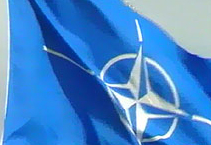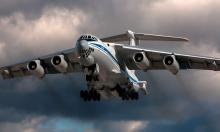Russia and NATO welcome foreign military presence on their territories
The introduction of the new international project will result in certain negative aspects for Russia

Russia and NATO signed an agreement about the legal status of the armed forces of NATO members and the countries, which participate in the Partnership For Peace program, on their territories. 
Experts immediately described the signing of the agreement as a historical event, which opened new perspectives for the implementation of projects and programs of cooperation between Russia and NATO. Other specialists, however, say that that the document became simply a paper to regulate financial and legal aspects of NATO's military presence on the Russian territory and the stay of Russian armed forces in the countries of the alliance.
The introduction of the new international project will result in certain negative aspects for Russia. For instance, Russia will have to be prepared to practice no passport, visa and even migration rules when military men of a foreign country arrive on the Russian territory to conduct joint military exercises, a peacemaking, or a counter-terrorist operation. Russian customs officers will not be allowed to check sealed official documents either; foreign guests will have a right to bring various equipment for their needs as well (the document does not stipulate which equipment is particular). A receiving country, however, will have to give permission for the import of equipment, although the duty-free importation of personal things, cars and furniture does not require any permission at all. Russian military men will be able to use the same rules too, though.
If NATO military men come to Russia, or vice versa, they will live as an independent enclave. They will be obliged to present an ID with a photograph and a personal number upon request from the authorities.
The additional statement to the agreement says that its members will not apply death penalty against any servicemen or civil employees from any other country. However, if it goes about a minor fault of a military man, an accepting state (Russia in this case) will have to provide a defendant with a lawyer and an interpreter. If necessary, the accepting state will have to organize meetings for a defendant with a spokesman for his native state.
Furthermore, an accepting state will not be entitled to demand property damage compensation, if the damage is caused by a foreign serviceman on duty. For example, if a NATO aircraft falls down on a Russia building, Russia will have to carry all expenses to raise the building again.
In addition, the document contains a lot of other points, which might cause misunderstanding on account of different mindsets. Civil and military authorities still have some time to think all points of the agreement through: the document will have to be ratified by the parliament.
Subscribe to Pravda.Ru Telegram channel, Facebook, RSS!





